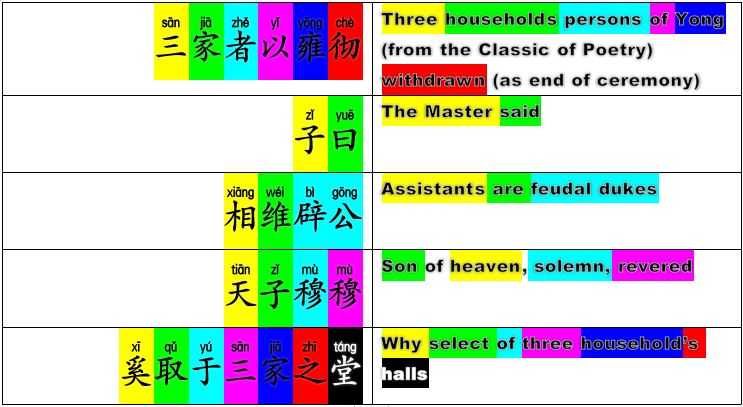Analects 3.7
Original Text:
子曰君子无所争必也射乎揖让而升下而饮其争也君子
Translation:

Other Translations:
The Master said, “Surely archery can serve as an illustration of the fact that the gentleman does not compete! Before mounting the stairs to the archery hall, gentlemen bow and defer to one another, and after descending from the hall they mutually offer up toasts. This is how a gentleman ‘competes.'”
Confucius, & Slingerland, E. (2003). Analects: With selections from traditional commentaries. Hackett Publishing.
The Master said, The gentleman never strives with others. To be sure, there are the archery matches. But even they have their bows and deferences as the contestants go up and come down, and the wine drinking at the end. Such is the “striving” of the gentleman.
Confucius, & Watson, B. (2007). The Analects of Confucius. Columbia University Press.





